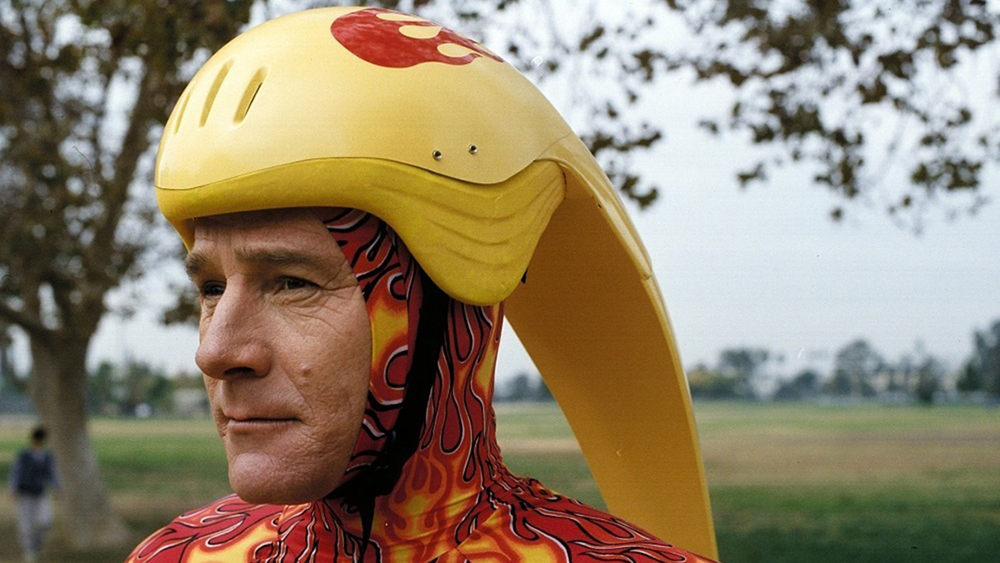Evolutionary biologist here.
I know this is a recurring meme, and it does have a basis in truth. However, in my opinion, it vastly overemphasizes a single aspect of early humans at the expense of other and more important distinct human qualities (and I’m using this term to also refer to our closely related species and ancestors).
First, the real distinction is sociality. Humans are the most cooperative species of hominid. As someone once said, you will never see two chimpanzees carrying a log together. This translates into being able to coordinate efficient hunting practices in a variety of ecosystems.
Second, and very related, is social learning. Other species can also exhibit social learning, but never to the degree humans do. Most species figure out things in evolutionary time - what counts as food, what counts as danger, the best way to do X, etc. Humans do it daily and pass it on to each other. We learn to kill prey by setting fires in grasslands. We develop tools and teach each other how to make and use them. These are all interlocking effects. The bigger our brains get, the more helpless our babies are, so the more we need societies, which creates increasingly complex social dynamics, which rewards more complex brains, and so on.
In short, it’s intelligence and social learning replacing learning in evolutionary time that made humans successful, possibly to the point of self destruction.
possibly to the point of self destruction.
Ah, an optimist
As someone once said, you will never see two chimpanzees carrying a log together.
Such a great point that really drives home just how much we cooperate and take it for granted.
And then people say competition is what makes society go around.
Nah, cooperation is the core of everything we do, and we should embrace it as much as possible.
deleted by creator
I’d also argue that our ability to accurately throw things to a reliable degree plays a huge part in our success as a species.
As far as I’m aware we’re one of the only species capable of accurately throwing things with consistency.
More broadly, we developed more slow twitch muscles that granted us greater fine motor skills, and subsequently the ability to create and use tools. Other apes retained their fast twitch muscles, so their ability to use tools is limited, but pound-for-pound they’re FAR stronger than humans.
I agree. I don’t know that I’d rank it quite as high as some other factors if we’re trying to find some function for “causal elements for human ecological success” or something like that, but there’s no doubt it was selected for and the degree to which we are good at it is a good indicator of its importance. Good call.
This was a very cool and eloquent explanation. Thank you!
How much does sleep and dreaming contribute to this? Have you looked into how humans dream compared to other animals? Any papers to point to?
That’s a fascinating question. I am not sure about animal research on dreaming, but Thomas Metzinger is an experimental philosopher (for want of a better term) who studies the basis of the concept of the self as a coherent entity, and his work includes extensive research on phenomena like lucid dreaming, phantom limbs, and out of body experiences. I’m not talking about anything paranormal - there’s conditions under which people’s experience of perception and self become separated from our ordinary experience of “my self is sitting behind my eyeballs.” He collaborates closely with experimental psychologists and neuroscientists, so between his work and references you might be able to see if there’s a correlation.
there’s conditions under which people’s experience of perception and self become separated from our ordinary experience
Depersonalization/derealization come to mind.
Interesting, I admit that I didn’t realize until I just did a little research that persistence hunting as a significant feature in early humans isn’t actually well supported by much if any evidence.
Are there other theories on why humans seem to be almost uniquely good at distance running? Is it a spandrel?
That’s a fantastic question!
There’s archeological evidence that modern humans were far more mobile than we have generally assumed (see eg David Graeber), but we’re talking 10-20k years ago there, which is very recent in evolutionary time where we’d be talking about physical adaptations.
SJ Gould, who was the origin of the spandrel idea, warned frequently against telling “just so” stories to try to reverse engineer the processes of selection that led to this or that feature. However, I do think that the hominid physique enabled multiple things. It has been observed that you won’t ever see a spider or octopus or dolphin moving fire from one place to another. That’s something that bipeds are able to do, and fire is one of the things we think was a key development. It’s the same with generalized tool use. So we can see there may have been multiple selection pressures leading towards bipedalism.
If distance running were truly a spandrel, we’d have to say that it was a consequence of these selective pressures giving rise to the body plan, but wasn’t itself selected for. I’d be more conservative on that one, and hazard a guess that distance running (or efficiency in long distance movement) was also a selective pressure. I just don’t think the evidence is there to say that it was the dominant one at that time.
In short, it’s intelligence and social learning replacing learning in evolutionary time that made humans successful, possibly to the point of self destruction.
So basically Agent Smith was right. We are a disease, a cancer of this planet.
I would say that, like chatgpt, agent smith managed to be not entirely wrong but also not right.
Yes, human beings are absolutely massacring life on the planet - the only planet that we know has life on it. I have a whole hours long spiel on the potentials for extraterrestrial life which I’ll spare you, but it’s truthful to say that, as far as we know, we’re all there is. Does that matter? That’s something that people (who are the only beings we know of who ask questions like that) will have to answer. As of now the answer is between undecided and no.
Anyway, unlike what Agent Smith says, literally everything is trying to do the same thing. If anything, the problem is that we’re exactly like all of those other organisms that are spamming the environment with copies of themselves. All of that fun alcohol we use to manage our perception of our existential crises come from the same dynamic - yeasts reproducing on sugars until they poison themselves with their own waste products, for which we as humans found a useful application.
The key is that when the species co-evolve as part of the same ecosystem, they mutually adapt. When one species invades another ecosystem, the other species there haven’t have had a chance to adapt in evolutionary time and so it sends shockwaves and possibly extinctions throughout the system. Some people believe (with a fairly strong argument) that the disappearance of megafauna - big land animals - followed human radiation over the land masses, and didn’t happen in Africa because all of the big animals co-evolved.
So we started out as an invasive species that just went pretty much everyplace. Were finishing up as a species that has the same kind of tight reproductive loop as those yeast friends, but in doing so we are going to take down a lot of our fellow beings.
Mom! Look what I can do! profusely sweats
“stop shedding hair young man!”
…I also smell profusely like musky urine.
It isn’t polite to brag, sweetie.
Humanity’s secret weapon: power walking
Sweaty power walking.
And throwing shit very well

It’s a fucking horror movie trying to run from something like that
The snail is terrifying.
You get lots of wealth, but a magic snail is trying to find you. If it touches you, you die.
You cannot track or kill or permanently trap it, it is constant moving towards you.
Something like that
Snail takes a 1.3 days to crawl a mile, 280 miles a year. With a huge amount of wealth you can just move to the otherside of the country or ocean every 6 or 7 years.
The snail is intelligent and understands transportation.
Still take the deal?
Can it buy a plane ticket though?
It can just stay where it is for 7 years and then get you when you travel back, or at least to that part of the world.
It can crawl up into the plane
Launch that sumbitch into space.
He jumps out of the rocket, is now floating in orbit. Still aware of your location.
You now have a killer snail traveling at ~20000mph over your head.
Removed by mod
I can’t permanently trap it, so I can put it in a safe that opens after like 1000 years?
It has magic slime, when trapped it starts melting through whatever material. You are not aware of how long this takes.
I can hire people to tell me when the safe has melted 🤔
Yep. You have to trust them too.
Sort of. It’s just “it is also as intelligent as you are, immortal, and does everything in its power to reach you. If it touches you, you die.”
Ironically, letting it out of your sight is the worst thing you can do. Because once you lose sight of it, you’ll think you’re safe… Until some random Tuesday night at 3AM, it crawls into your bed and kills you in your sleep. You don’t want to just turn tail and run. You want to keep an eye on it, so you know where it is at all times. Pay a friend (or even two friends) to collect it in a secure container like a fireproof (airtight) safe, and watch it while you sleep.
Next, you want to start working on a more secure container. After all, you’re in it for the long haul. You want something that won’t corrode over time, has no easy openings, and will be difficult for someone to (either accidentally or intentionally) crack open. Concrete is a decent choice for a core, just for its massive compressive strength. It won’t easily crush. But it WILL degrade over time, so you’ll need something else to protect it. Tungsten would be a good choice, but it’s expensive. So maybe keep the snail encased in concrete, (checking it every few days to ensure it’s still structurally sound) while you wait a few centuries for your wealth to grow. After all, you have time.
Once you have enough money, encase that shit in tungsten. You want this shit to be impermeable and permanent, so don’t skimp. At that point, you can probably let your guard down a little bit. Only check on it every year or two, at most. Maybe keep it in an empty room with quadruple motion sensor alarms, to detect if the snail manages to escape. After all, this is the future and I’m sure the tech exists (if the rest of the humans haven’t bombed themselves into oblivion yet.)
We could go farther, and assume humans are spacefaring at this point. Do you consider trying to launch it into the sun? Into a black hole? You could simply yeet it as far away from yourself as possible. But then you’re getting rid of the only thing that can actually kill you, which you may end up regretting eventually. After all, if you’re the only thing left after the heat death of the universe, you’ll probably be wishing you had kept that snail a little closer to home.
I had heard it said that it can’t actually be destroyed, and if trapped would WOULD get out eventually. Like via its magic means, not the millennias of deterioration for the concrete to crumble
Removed by mod
Decoy snails too
Enough wealth to send a snail to space?
All you did is accelerate the snail to orbital speed. It’s gonna find a way to return to earth
The plan is to send it into the sun
You just made a flaming hot Cheeto seeking vengeance
*Halloween music gets more intense
It Follows
Good movie.
https://youtu.be/9VDvgL58h_Y?si=HPxgbBOFF0Subzti
Something like this? I remember this one from a longtime ago. He just never stops coming after the victim.
Here is an alternative Piped link(s):
https://piped.video/9VDvgL58h_Y?si=HPxgbBOFF0Subzti
Piped is a privacy-respecting open-source alternative frontend to YouTube.
I’m open-source; check me out at GitHub.
Speak for yourself! I get tired easily
It’s ok, I saved you some Mammoth.
I just woke up and I’m so tired.
Mood
I dunno if a thrown spear counts as “short range” in a primitive world
Atlatls are over 20000 y/o and are futher range than just spears.
Bow and arrows show up in the archaeological record ~70000 years ago.
So, yeah both those are longer range than spears and predate writing and use of most metals.
So if you consider pre bronze age primitive; yes spears are short range.
Heck, slings were around even before bow and arrows and can definitely be considered long range
We probably got pretty good at picking birds out of trees with those things back when our dinner depended on it. There were definitely some impressive acts of slingery going on at some point.
They recently discovered evidence that the atlatl was used 30,000 years ago.
It was long enough! Most animals just don’t get ranged weapons; it’s as if we’re killing them by merely looking at them.
Hey who you calling primit-
Primittititiv-…
HOO
HOOOO HOOO HAA HAAAAAA
Also you said tit Ook OOk OOK HOOHOO HAHOO!
HOOOO HOOO HOOO HAAAAA AAAAAAAAAAAAAAA HOoooo o o
Reject modernity. Return to monke
“That Terminator is out there. It can’t be bargained with. It can’t be reasoned with. It doesn’t feel pity, or remorse, or fear. And it absolutely will not stop, ever, until you are dead!”
Gotta love the implacable man trope… terminators and zombies: using our own strengths against us for decades now.
Let’s not kid ourselves, the real reason is the POWER OF FRIENDSHIP!
Humans never get tired from exercise?
Humans have the highest capacity for endurance and for a very long time we hunted not by being smarter but by literally following animals until they got tired and gave up before we did.
I believe certain breeds of dogs and horses can keep up with us, but only because we bred them to.
Early human to wolf: “You stalk. I stalk. Stalk together?”
Wolf: “Us BFF4Eva hairless ape”
The most enduring love story in human history.
20,000 years later:

20,000 years later:

Peak animal capacity right there. Imagine being so totally and entirely beyond the abilities of our contemporaries that this is considered an apex predator.
I will kill for this creature
Iirc, the dogs are huskies
I believe there were a few breeds who can but Huskies are the well known ones.
To follow an animal often required tracking it when it ran out of sight. Our sense of smell stinks, so we looked for clues on where it went. That’s smart
Our sense of smell isn’t bad. We’re great at detecting minute variations in smells as well as detecting rotting things in very little quantity.
Yeah, you’re right. I should have said that our sense of smell isn’t specialized for smelling other animals at a distance for tracking like many other animals can.
That, plus we are good at throwing things and we sweat. Which means we have range and we can cool off while still being active.
The thing with a lot of animals is also that they’re pretty dumb.
They could potentially out walk us, it’s the most energy efficient way of moving, but what they actually do is run off when they see a human, then when they no longer see the human, they take a break. At which point the human catches up. At which point they run off again. Repeat multiple times.
The human simply has to keep walking, while the animal keeps running off. If the animal instead walked, the human would never or take far longer to catch up, because the animal would tire itself far less.
Humans use less energy because we’re bipedal. Even if the hunted animals walked, presumably humans could trail them and wait them out.
This is why horror movie characters always just walk slowly
I mean it’s not dumb, it’s evolution. Can you imagine a deer “just walking” away from any other predator?
Also, teamwork. Chasing animals in circles and handing off.
If they’re fit, not too tired. Humans are some of the best distance runners in the animal kingdom, and we can walk virtually forever. And we can regulate our own body temperature by sweating. And we can carry some extra food and water with us. And we are capable of being excellent trackers as well. The joke in the op is about how humans used to hunt - by chasing an animal until it collapses of exhaustion. Some tribes still do this today
https://en.m.wikipedia.org/wiki/Persistence_hunting
Still practiced by some too
As a group we do not. Grab 5 buddies, take turns jogging, follow a deer until it either falls off a cliff/gets exhausted/makes some other mistake.
If it runs, chill, just spread out and keep it in sight.
This is how the human do
deleted by creator
Is there a source for this?
Their imagination.
260 miles is not easy ever. The caloric expenditure alone is a massive hurdle.
That said, ancient man certainly had great endurance but part of that was knowing when to walk, and bringing a buddy.
Depends on what you mean exercise. Sprinting will tire you out, but you will quickly be ready again. Walking you can do almost forever. If you have a decent amount of fat on your body, you are basically a perpetuum mobile (sleep excluded, of course). Your footwear will go before you tire.
You can keep walking/running while sleeping/resting
Being upright and the ability to sweat through our skin. Most quadrupeds can only exhaust heat through panting, and their diaphragms compress when running so they can’t pant as effectively.
This before deliveroo though
And then somebody invented the idea of THROWING a rock and suddenly the game of earth is SOLVED.






















